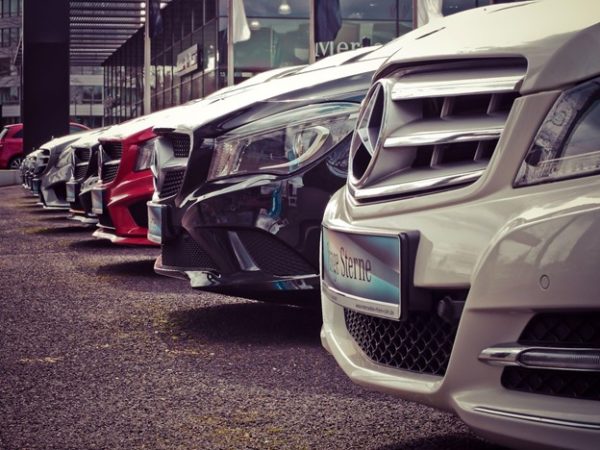It’s not always an easy decision to buy a new car. You have to think about what you need your car for, how much money you want to spend, and more. Luckily, there are many things that can help make this process easier. For example, suppose you know what type of vehicle you’re looking for (SUV or sedan). In that case, it’ll be much easier to narrow down your choices without having too many options thrown at you – which will save time and give the buyer more clarity on their decision-making process.
Shop around for a car loan or a car lease rather than a car purchase
Affording a car is one of the biggest purchases you’ll make. The sticker price is just the beginning. In addition to the purchase price, you’ll have to consider monthly payments, trade-in value, taxes, interest, and insurance.
It’s a good idea to shop around for car loans, but few people do this — most banks, credit unions, and other lending institutions offer the same rates, and it can be difficult to tell the difference. Quick loans in the UK are a great place to start when sourcing the right loan that works for you.
It’s excellent to comparison shop, but you might be better off with a lease. Leasing a car is a better option than buying one because it saves money in the long run. In most cases, you’ll pay less per month, and at the end of the lease, you’ll walk away without owing anything to the car.
Leasing a car is a good option for anyone who’s not sure they’ll drive the car for more than a few years. You can usually lease a car for up to 4- or 5- years — some leases last 10 years.

Consider the car’s safety features
Safety features are crucial to the well-being of your family, which is why it’s essential to consider a car’s safety features before you buy. Many cars sport automatic braking systems, blind-spot detection, backup cameras, and all kinds of other features that are designed to keep you safe on the road. Before you drive off the lot, make sure you research these features, so you can make sure the new car you’re buying has what you need.
Automatic braking systems: If you’re driving in heavy traffic, automatic braking systems can help you avoid collisions. Some systems can even sense pedestrians, even if they’re crossing the road at night. These systems use sensors and radar technology to detect objects, then automatically apply the brakes if the car gets too close.
Blind-spot detection: If you’re backing out of your driveway or parking lot, this feature can alert you to vehicles approaching your blind spots.
Backup cameras: This feature is especially helpful if you’re parking in tough spots, like your garage or a crowded city parking lot. It can help you see around the car, helping you avoid scratching it or hitting someone else.
Lane-departure warning systems: If you’re driving on a busy highway, this feature can alert you if you’re drifting toward another car in your lane.
Rear-view cameras: This feature can give you a bird’s-eye view of your car, helping you avoid collisions and helping you maneuver through tight spots.
Lane-keep assist systems: If you’re driving on a busy highway, this feature can alert you if your car starts drifting out of your lane.
Pedestrian detection: Some cars can alert you when a pedestrian crosses the road in front of you.
Forward collision warning systems: If your system senses that your car is about.
Your Budget
When shopping for a new car, always ask yourself how much you can afford. The dealers are in business to sell cars, so they want to help you get the best price. They will make all sorts of promises about how low their prices are and how great their financing terms are. They’ll even tell you to “read the fine print,” insinuating that they’ll tell you all the “hidden” charges that you didn’t find out about. But be careful. While it’s true that if you don’t read the fine print, you might get taken advantage of, you should not be lured into expensive deals.
The best strategy is to shop around, but don’t leave anything to chance. Know how much you can spend before you start shopping. That way, you will only look for cars that fall within your set budget.
Fuel Consumption
When buying a car, many people consider only the purchase price, the size of the engine, and the level of comfort. While those are certainly important considerations, the fuel consumption should be considered as well. New cars that consume less fuel are environmentally friendly and can save you money.
Your car is with you all day, every day. Your decision to buy it should take into account whether the car will consume more or less fuel than the same model did before. This difference is, in fact, often the most important factor to consider. You can measure fuel consumption in several ways, but the easiest is miles per gallon. (To convert miles per gallon to liters per 100 kilometers, multiply the result by 1.6.) The U.S. Environmental Protection Agency’s website has an excellent table of fuel consumption for cars models from 2000 to the present.
The lesser the fuel consumption, the better the car is unless you are okay with cars that consume lots of fuel.
Engine Size
When you set out to buy a new car, you are not just evaluating its looks or its reliability. You are buying a complex machine that is going to affect your life in ways you can’t possibly imagine. So, you should think about the engine size, and the car’s gas mileage, comfort, performance, and safety. The fact that there are so many choices can seem overwhelming. But that’s why you have to do it. If you choose the wrong car, you will regret it. If you chose the right car, you won’t. Therefore, take time to determine the type of engine you want, and then purchase.
Maintenance Costs
The more you drive your car, the more the maintenance cost will go up. Most people don’t consider maintenance costs when buying a new car. They consider purchase price, gas mileage, and price of the car.
They have to decide how much driving they will do. Do they commute? Do they drive long distances? Do they plan to drive a lot? If they plan to get a new car every two or three years, maintenance costs are much less of an issue than if they plan to keep a car three or four years.
They don’t take into account depreciation. If you buy a car for £40,000 that’s worth £10,000 after three years, the maintenance cost is £10,000 a year. But if they buy a £20,000 car that’s worth £30,000 after three years, the maintenance cost is £3,000 a year. They don’t take into account the cost of repairs. If the car breaks down, they have to fix it, and it costs about £500 an hour, at least until they get good at it.
Why You Need a New Car
Considering purpose, for instance, is very relevant to buying a car. If the car will be your only car, you will be much more concerned about the environmental impact, fuel consumption, and so on. If the car will be a shared car, you will care more about whether it has sufficient room, seats, and luggage capacity. Thinking about purpose before buying a car can save you a lot of headaches since you will already know what to look for. Considering the car’s purpose is also crucial, especially if you are buying a family car. For such a car, you must consider the size, comfortability among other factors that your family might need in a car.





